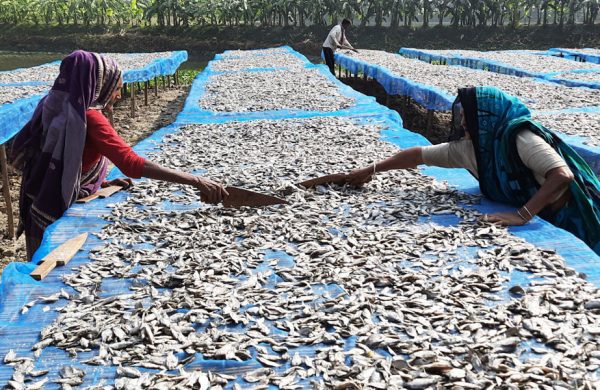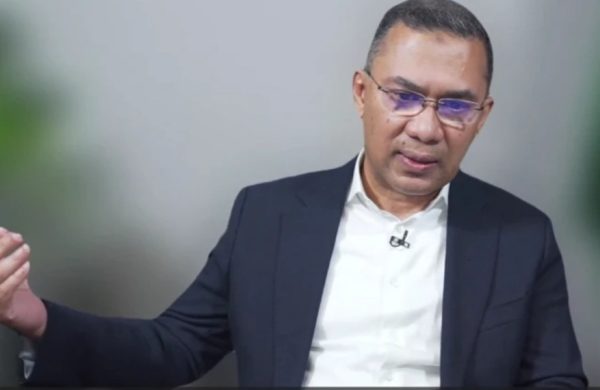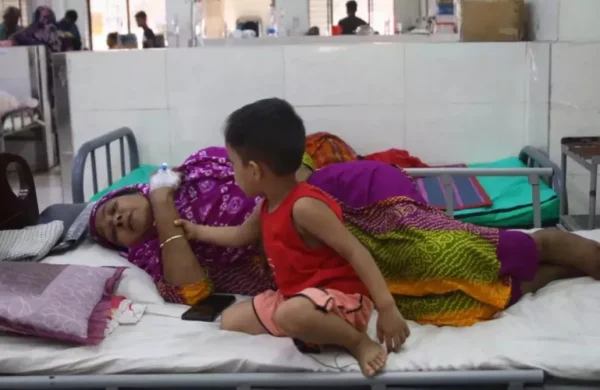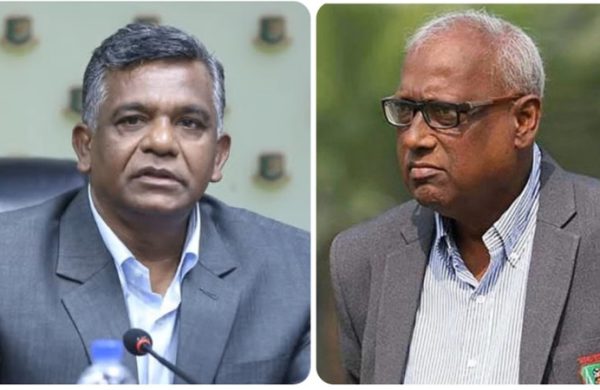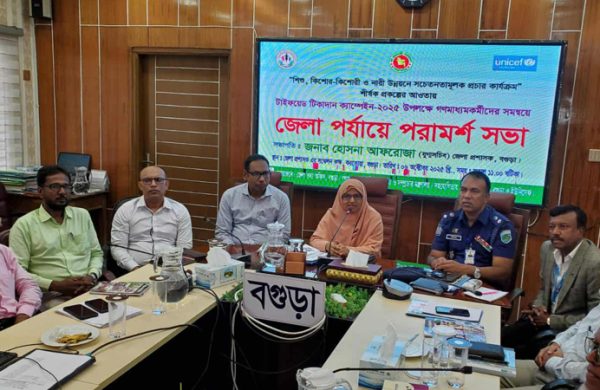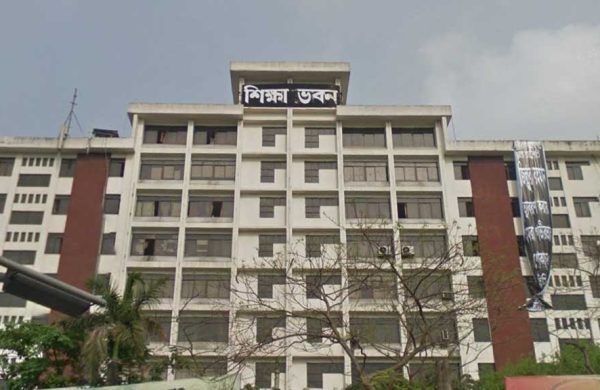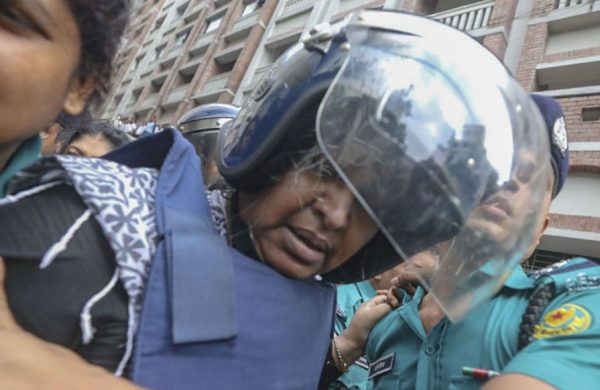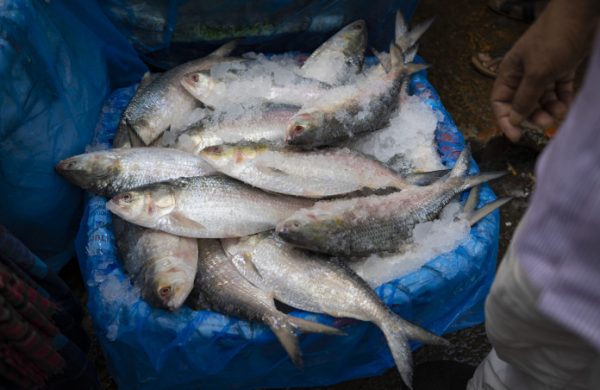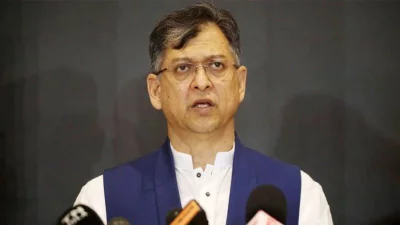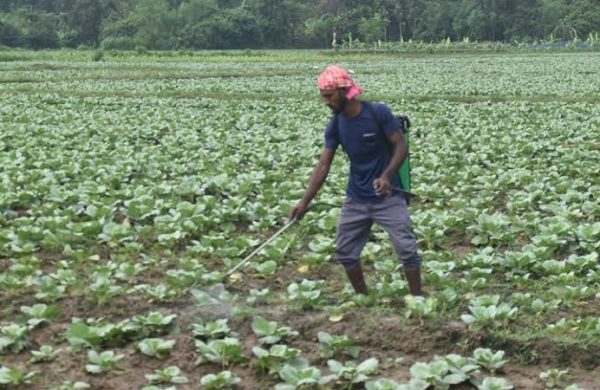Crime and extortion reach alarming levels
- Update Time : Monday, October 6, 2025

TDS Desk:
The country’s law and order situation is by no means normal. Instead, rising incidents of murder, terrorism, extortion, and other crimes are making the environment increasingly alarming. Statistics show that offenses like murder, theft, robbery, and sexual assault have surged across urban and rural areas alike, while extortion continues without interruption.
According to statistics from the Police Headquarters, in the current year (January–August), an average of 540 cases per month were recorded over these eight months. In the previous year, the monthly average was 445 cases. Compared to last year, this year has seen an average of 95 more cases per month due to murder, robbery, crimes against women and children, and rape.
When the interim government took office, there were expectations that the country’s law and order situation would improve. Hopes were that murders, terrorism, thefts, robberies, and extortion would decrease. However, instead of improving, the situation has worsened. Despite the government’s good intentions, improvements have not materialized due to factors such as low police morale. Even after 13 months of government tenure, the lack of satisfactory improvement in law and order has created a sense of insecurity and fear among the public.
CRIME ANALYSTS SUGGEST THAT UNEMPLOYMENT,
Drug addiction, and social inequality are driving the rise in criminal activity. In addition, the current political instability in the country is also influencing these crimes in one way or another. Without addressing these underlying issues, police action alone cannot reduce crime.
Professor Dr. Iftikhar Uddin Chowdhury, a crime and social analyst, said: “According to media reports, the increase in crime needs to be controlled to give people a sense of relief. People are not doing well. But crime rates can be reduced not only through police operations but also by raising social awareness, creating employment, and ensuring speedy justice.”
Police Headquarters’ statistics also indicate a rise in crime. According to their data, in the eight months from January to August this year, there were a total of 4,316 cases of murder and banditry nationwide. This averages 540 cases per month. Among these, robbery and banditry accounted for 1,702 cases, and murder for 2,614 cases.
In 2024, there were a total of 5,334 cases of robbery, banditry, and murder in 12 months, averaging 445 cases per month. Of these, 1,902 were robbery and banditry cases and 3,432 were murder cases. Analysis of this data shows that compared to last year, there have been 95 more cases per month this year involving robbery, banditry, and murder. Compared to 2023, the monthly average for this year has increased by 160 cases. However, some officials suggest that these police statistics never fully capture the actual situation, and in reality, crimes are believed to be even higher.
In the previous year (August 2023 to July 2024), there were 1,619 cases of robbery and banditry nationwide, averaging 135 cases per month. According to Police Headquarters, this represents an increase of 838 cases compared to the previous year, or 70 additional cases per month.
The police, however, claim that operations are ongoing to identify and arrest those involved in any criminal activity. A Police Headquarters officer said, “We are conducting special operations across the country.” Meanwhile, the public reports that even when criminals are caught, the lack of punishment leads them to commit crimes again, raising concerns over weaknesses in law enforcement and the judicial process.
RAMPANT EXTORTION
Narsingdi’s Additional Superintendent of Police Md. Anwar Hossain is currently hospitalized after being injured in an extortion attack. The attackers used sticks and rods to assault him and other police officers. The district Police Superintendent, Minhajul Alam, said, “A case has been filed under the Speedy Trial Act for the attack on the police. Seven individuals involved have been detained and are being interrogated, and operations are ongoing to arrest the others.”
It’s not only attacks on the police. Since August 5, extortion has been occurring both overtly and covertly in 64 districts, including the capital. Even the transportation of goods has been affected. Recently, a truck driver named Ruhul Amin said that after loading goods in Nawganj, he had to pay extortion several times. Over a hundred victims nationwide confirmed that extortion is happening in secrecy across the country.
Conversations with people from various professions reveal that business owners and others are falling victim to extortionists. Many are afraid to report to the police, and those who do risk their lives. Extortion is sometimes carried out under the guise of a “coordinator” who organizes mobs.
On 27 July, a group posing as coordinators attempting to collect remaining extortion payments in Gulshan, Dhaka, were caught in a police trap. Student coordinator Md. Asadur Rahman Akash and his two accomplices, Farid Uddin and Robin, were arrested by a joint task force in Uttara, Dhaka.
Sources from the joint force report that the arrested criminal gang, led by Akash, was involved in extortion, creating terror among the public, and various illegal activities. Recently, news about mob creation and terrorist activities by them was published in print and electronic media. They have also extorted large sums through false and harassing lawsuits. Allegations against them include assaulting journalists through mob violence, intimidation, and involvement in terrorist activities.
Further information about extortion is continuing to emerge. It was reported that in many cases in districts like Narsingdi and Mymensingh, murders have occurred even when extortion demands were not met. Victims of extortion have protested in the streets in various places.
Recently, from Mohammadpur in Dhaka to Savar, Jhenaidah, Mirsarai, Mymensingh, Ashulia, and even Chattogram, people have taken to the streets to oppose extortion. In many areas, the security situation remains precarious.
EMERGENCY MEETING AT POLICE HEADQUARTERS
To curb rampant extortion, the Police Headquarters has instructed all district police chiefs to take stricter measures against extortionists. If victims are too afraid to file cases, the police will act as plaintiffs. If extortion money and other evidence are caught in the act, cases will be filed under the Speedy Trial Act. A senior official said that in several Police Headquarters meetings, Inspector General of Police (IGP) Baharul Alam gave instructions to the police chiefs of 64 districts, metropolitan police commissioners, and top officials of all ranges in a virtual meeting.
IGP Baharul Alam said that operations are ongoing to control all types of crime alongside extortion. There is no opportunity for criminals to get away with offenses.
A senior police official, speaking on condition of anonymity, said that political affiliations will not be considered when bringing extortionists to justice. Individuals involved in extortion at the district level will be arrested and sent to the District Magistrate’s office for detention.
Rise in Extortion After August 5: Economic Adviser Dr. Salehuddin Ahmed told journalists at the Ministry of Finance on Tuesday (September 30) that extortion has increased in the country since August 5 last year. “The interim government could not control extortion, and without political commitment and a political government, it is not possible to control it.”
He added, “Previously, one unit of money was extorted; now, one and a half or two units are being collected. After August 5, various groups became involved in extortion, including those previously engaged. Many extortionists are members of business organizations.”
He also said that extortion is raising commodity prices, but stopping it is not the responsibility of his ministry.
On Saturday, in a discussion meeting in Gulshan, Dhaka, Jatiya Party (faction) chairman Anisul Islam Mahmud said that the country’s law and order situation has severely deteriorated. No signs of improvement are visible, and instability prevails among the population.
All crimes increasing
It is not only extortion—murders and other crimes are also rising. Last Friday in Bagerhat city, journalist Hayat Uddin was publicly killed at night.
On Sunday night, two people were brutally attacked during a robbery on the Dhaka-Tangail highway. A video of such an incident went viral on social media.
On 2 October, a gang entered the house of Md. Abdul Sobhan in Gaziapur, tied up family members, and looted valuables.
Other recent criminal incidents include a woman being hacked and killed in Gandaria, Dhaka, and the discovery of a partially decomposed body of Md. Omar Faruq Molla from Dhanmondi Lake.
On 1 October, Tanvir Hasan Shuvo was shot and killed in Maheshwarpasha, Daulatpur, Khulna.
On September 18, a contractor was shot by terrorists in Rauwzan, Chattogram, for not paying extortion.
On 12 September, two people, Robin and Bishal, were shot in Shahjahanpur, Dhaka. On the same day, a woman’s body was recovered from Kadamtali, Old Dhaka.
Mob terrorism unabated
According to the Human Rights Culture Foundation (MSF) report for September, mob violence in the country is not stopping. Last month, 24 people died in public beatings, and killings and rapes continued. Compared to August, September saw a further deterioration of law and order and an increase in human rights violations.
The MSF report noted that last month, 52 unidentified bodies were recovered from canals and bushes. Eighty-three women were murdered, eight more than the previous month, and 53 cases of rape were reported.
Lt. Gen. (Retd.) Md. Jahangir Alam Chowdhury, Advisor to the Ministry of Home Affairs, said that social instability, intolerance, and moral decline are increasing crime rates in society. He made this statement to journalists after a meeting of the Law and Order Advisory Committee at the Ministry of Home Affairs.
According to Police Headquarters data, from 15 July to 17 August this year, 650 people were arrested for extortion and illegal occupation. About 60% of those arrested were new faces, with the majority in Dhaka Metropolitan and Dhaka Division (323 people, 223 of them new). More than half of the 650 arrested in one month were political activists.
Dhaka Metropolitan Police Commissioner Sheikh Md. Sajjat Ali said extortion is a social problem. Extortion is driving up prices of daily commodities, and measures against extortionists are ongoing.


